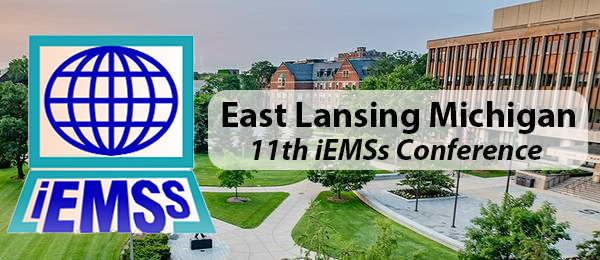Keywords
distributive justice; mitigation pathways; integrated assessment modeling; multi-objective optimization; direct policy search
Start Date
7-7-2022 12:40 PM
End Date
7-7-2022 1:00 PM
Abstract
Humanity faces the unprecedented global challenge of climate change. Integrated Assessment Models (IAMs) are central to informing decision-making to avoid catastrophic consequences. However, policy recommendations resulting from IAMs commonly prompt a very heterogeneous distribution of risks and benefits across the globe. During the recent 2021 United Nations Climate Change Conference (COP26), it became clear that equity is a central issue in the climate action debate. Emerging economies consider currently suggested abatement policies unjust in light of the historical CO2 generation of high-income countries and the strongly increasing need for energy in low-income countries. Equity is therefore an eminently pressing topic, yet most IAM studies largely neglect it due to the implicit use of a utilitarian social welfare function that aggregates risks and benefits over space and time, thus losing sight of distributional consequences. Using alternative social welfare functions (rooted in e.g., egalitarianism, prioritarianism, or sufficientarianism) are likely to yield very different climate abatement pathways within an optimization setup. In this study, the RICE model is transformed into a simulation model and embedded in a manyobjective simulation-optimization setup in order to find Pareto-optimal climate mitigation pathways. We compare these pathways across four different ethical problem formulations and show how global emissions, economic damages, and the increase in atmospheric temperature are substantially lower in nonutilitarian problem formulations. These differences in resulting pathways can then be used to support the decision-makers with more transparent policy recommendations that are based on explicit normative assumptions which can be chosen by the decision-makers.
Impact of Ethical Premises on Pareto-Optimal Climate Abatement Pathways
Humanity faces the unprecedented global challenge of climate change. Integrated Assessment Models (IAMs) are central to informing decision-making to avoid catastrophic consequences. However, policy recommendations resulting from IAMs commonly prompt a very heterogeneous distribution of risks and benefits across the globe. During the recent 2021 United Nations Climate Change Conference (COP26), it became clear that equity is a central issue in the climate action debate. Emerging economies consider currently suggested abatement policies unjust in light of the historical CO2 generation of high-income countries and the strongly increasing need for energy in low-income countries. Equity is therefore an eminently pressing topic, yet most IAM studies largely neglect it due to the implicit use of a utilitarian social welfare function that aggregates risks and benefits over space and time, thus losing sight of distributional consequences. Using alternative social welfare functions (rooted in e.g., egalitarianism, prioritarianism, or sufficientarianism) are likely to yield very different climate abatement pathways within an optimization setup. In this study, the RICE model is transformed into a simulation model and embedded in a manyobjective simulation-optimization setup in order to find Pareto-optimal climate mitigation pathways. We compare these pathways across four different ethical problem formulations and show how global emissions, economic damages, and the increase in atmospheric temperature are substantially lower in nonutilitarian problem formulations. These differences in resulting pathways can then be used to support the decision-makers with more transparent policy recommendations that are based on explicit normative assumptions which can be chosen by the decision-makers.



Stream and Session
false